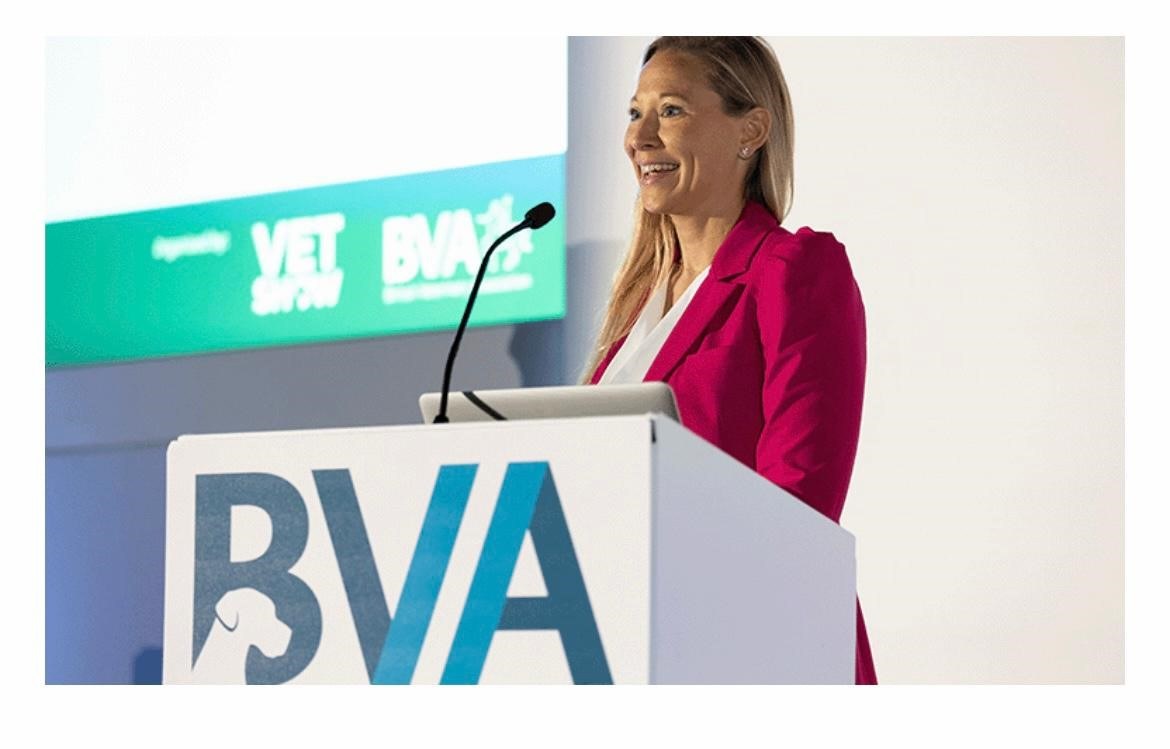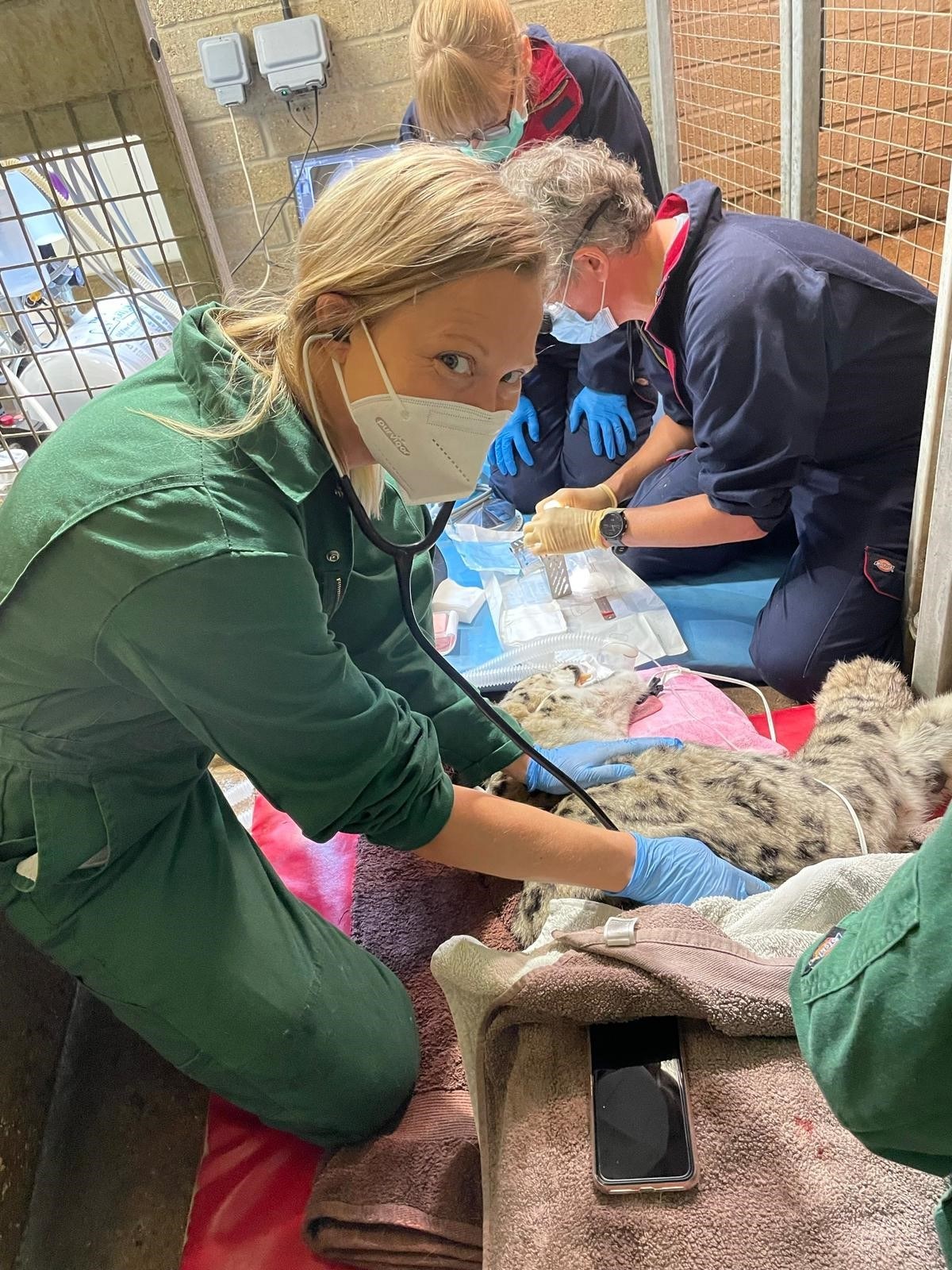Lets get to know Justine Shotton BSc BVSc MSc MRCVS, one of our new Directors at Vet Sustain
Despite starting out in mixed practice, Justine has followed a fascinating veterinary career moving into wild animal and zoological work after completing a masters in Wild Animal Health. She has a great passion for sustainability, bringing this theme to her role as BVA president from 2021-2022. She now works for the RSPCA as their Head Vet for Wildlife and Exotics supporting the health and welfare of British Wildlife. Find out more about Justine in our interview below.
Vet Sustain
Hi Justine! Tell us a little about your career so far!
In my vet life, I’ve had many roles - I started out as a mixed vet, doing a lot of farm work - including pigs and alpacas - as well as equine and small animal work. After a few years I’d saved up enough to do a Masters in Wild Animal Health, pursuing my dream to learn more about wild animals and conservation. I went on to work at the Zoological Society of London working with native species reintroductions and translocations and then got a job at Marwell Zoo in Hampshire where I led the vet team for almost a decade.
In 2020 I joined the BVA officer team and was President from 2021-2, with my theme of Sustainability. When I finished this post in 2023 I joined the RSPCA as their Head Vet for Wildlife and Exotics, where I now work supporting all British wildlife in our wildlife centres, as well as supporting the inspectorate with rescuing exotic pets and wildlife and supporting and empowering the veterinary profession to be able to deal with these animals in the best way and with the best welfare outcomes, across species.
I joined Vet Sustain at the end of 2023 and am extremely excited to continue to promote sustainability in our profession in this role. As well as having a keen interest in zoo species, wildlife, exotics and conservation, I am dedicated to improving animal welfare across species, with a focus on preventative health. I have done a lot of work on small animal sustainability, both in terms of how practices can become more sustainable but also in terms of how we can inspire the pet-owning public to keep their pets in a way that reduces their impacts on the planet. I’m also writing a book on sustainable pet ownership to continue to explore these themes and educate the public! I am a member of the UK One Health Coordination group and feel strongly that we have to recognise that we humans are indeed animals living with other animals in our shared ecosystem, rather than considering these elements in isolated interacting units.

What does a typical day look like for you?
A typical day for me at the RSPCA can vary quite a lot - some days I’m in meetings with our wildlife centre vets or managers, other days I’m running leadership workshops on animal welfare or ethics, other days I’m out with inspectors learning about the work we do to rescue animals. I often have meetings with external stakeholders to link-up the best approaches to wildlife and discuss how we can collaboratively support the professions to work with these species in the best possible ways. While I do occasionally miss the clinical work, and the opportunity to anaesthetise a tiger or treat a giraffe, I love having bigger impacts on many more animals and feeding into impactful work such as legislation changes around wildlife management, for example, that can not only help conservation but also improve animal welfare for many millions of animals.
What is your most favourite part of your job?
My favourite part of my job is working collaboratively with diverse stakeholders to achieve impactful change. I strongly feel that I want spend my life doing whatever I can to improve animals’ lives, and to help ensure that the planet we share will continue to function to support future generations of animals, including humans.
What is the most challenging part?
I think the most challenging part of my job is getting different groups of people with different backgrounds to better understand animals and think from the animals’ perspectives, and therefore enabling these people to be better placed to advocate for animals and their welfare. I also think it’s hard to get people to think about their long-term impacts, for example the ecosystem impacts of the work that we do in helping individual animals, and how to judge what’s best overall. I love ethics and feel that we have many different ethical approaches in our societies to animals, the planet and people, and these are often not consistent, both across and within different cultures, countries, communities, and individuals. I think that us all understanding the reasons behind the decisions we make and actions we take on a daily basis is helpful for us to better understand ourselves and look for solutions. I also love learning about social science and psychology, particularly around things like human behaviour change, and I think it’s vital for us as vets and sustainability advocates to understand how to get people to take action as well as understand us and the importance and urgency of our messages.
What tips do you have for achieving a good work-life balance?
In terms of achieving a good work-life balance, I think for me, exercise and getting outside when I can is really important. I am fairly solar powered, so making sure I spend time in nature and in the sun or the sea on a fairly frequent basis is really important to my productivity. I love learning new things so it’s important that I have projects, goals and learning opportunities that are independent from my work in order to thrive. I’m also trying to prioritise sleep, and it’s so fascinating how essential it is to every part of our lives and health - although this can be easier said than done!

What role do you feel veterinary professionals can have in driving sustainability and what are your top tips?
I believe that veterinary professionals do a huge amount to drive sustainability - from advocating for less and better meat consumption and production as well as sustainable agriculture, to promoting healthy pets who need fewer medicines or anaesthetics. I believe that vets understand One Health deeply and the concept that we co-exist, so improving the health of the planet will also have strong wins for animal welfare and human welfare, which is so important to all of us. It was great to see the engagement of our professions, both during my time at BVA and now in Vet Sustain, and I’m eager that we continue to keep that momentum going and drive change across sectors through our enthusiastic people and inventive approaches.
My top tips for you to take your first steps to drive sustainability in your role is to start by taking action now, and leading by example. I think finding hacks to make more sustainable practices the default, and finding “easy, impactful wins” is important, as is finding ways to pitch for more sustainable options which also save your workplace money - as these are easy to get managerial support for. Start your own Green Group, and even if no one else is initially keen, the changes you will start to make as an individual will get momentum from others. Often, many members of the team are keen to get involved but don’t know how - if you inspire them, then they will join you! And remember, every step in the right direction to a more sustainable future is one worth making, even when the task ahead can feel overwhelming at the outset.
If you could wave a magic wand and make one improvement to drive sustainability what would it be?
My magic wand would be to find a solution to engage pet owners in responsible feeding and not over feeding their pets. Pet food has a global impact of a similar scale to air travel, and as well as this huge impact, it’s so sad to see so many pets suffering from obesity and obesity-related diseases and conditions. A major way to improve the carbon pawprints of pets is to feed them to an ideal body condition score - this will not only improve the health of the planet, but ensure billions of farm animals are not produced unnecessarily and improve our pets’ health. We’ve been trying to teach owners about pet weight for many years - maybe using the sustainability angle will help get our message across!